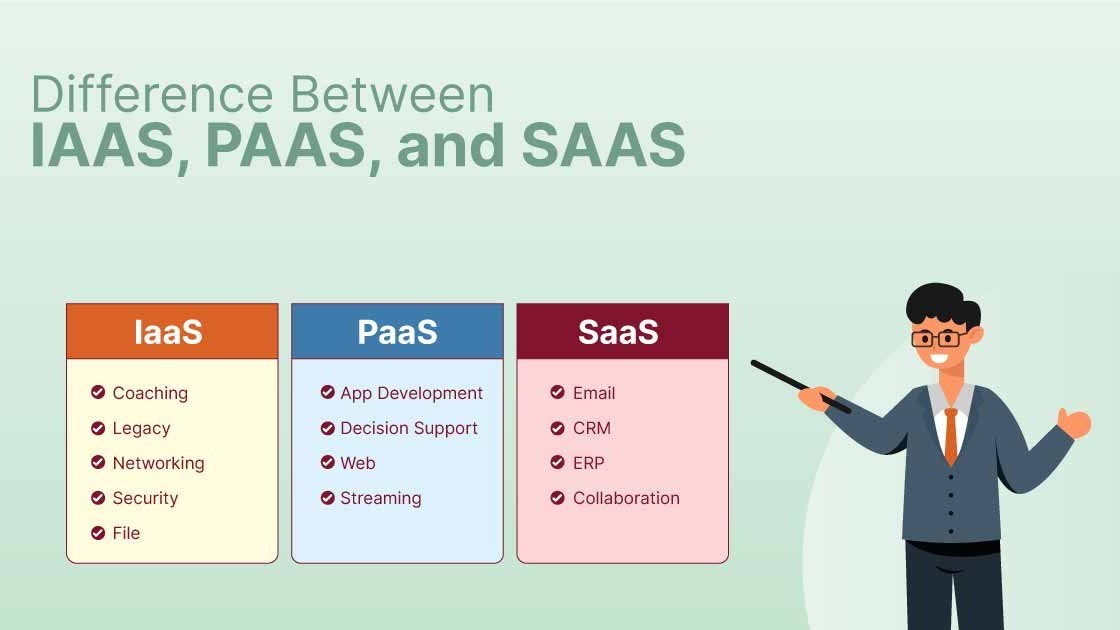
Understanding Cloud Service Types: IaaS, PaaS, SaaS
Overview
In today's tech-driven world, cloud computing has become essential for businesses and individuals. It offers flexibility, scalability, and cost savings, making it a popular choice for many. If you're interested in learning more about cloud services, signing up for Cloud Computing Course Online can be a great starting point. The three types of cloud services that we will cover in this blog are Infrastructure as a Service (IaaS), Platform as a Service (PaaS), and Software as a Service (SaaS). Similarly, If you are looking to learn more about cloud services, consider pursuing a Cloud Computing Certification.
What is Cloud Computing?
First, let's define what cloud computing is. Simply put, cloud computing allows you to access and store data and applications over the internet instead of relying on local servers or your personal computer. This means you can use powerful tools and software without needing to own or manage the physical hardware yourself. Programs like an AWS Online Course or a Google Cloud Course can provide you with hands-on experience with leading cloud platforms.
Types of Cloud Services
1. Infrastructure as a Service (IaaS)
Cloud services that provide infrastructure as a service (IaaS) are the most basic. It provides virtualized computing resources over the internet. With IaaS, businesses can rent things like servers, storage, and networking on a pay-as-you-go basis.
Benefits of IaaS
●??????? Cost-Effective: You only pay for what you use, which can save you a lot of money.
●??????? Scalability: Resources can easily be increased or decreased according to your requirements.
●??????? Flexibility: You can choose the operating system and software you want to run.
Use Cases for IaaS
●??????? Website Hosting: IaaS is great for hosting websites and web applications.
●??????? Backup and Recovery: It’s useful for backing up data and recovering it in case of a disaster.
●??????? Development and Testing: You can create test environments quickly without having to buy physical servers.
Popular IaaS Providers
Some of the well-known IaaS providers include:
2. Platform as a Service (PaaS)
PaaS is a step up from IaaS. Through this platform, customers can develop, run, and manage applications without having to worry about underlying infrastructure. It includes tools and services that make app development faster and easier.
Benefits of PaaS
●??????? Faster Development: PaaS helps developers create applications more quickly by providing pre-built tools and services.
●??????? No Infrastructure Management: You don’t need to worry about the servers and storage; you can focus on building your app.
●??????? Collaboration: Teams can work together on the same project, even if they are in different locations.
领英推荐
Use Cases for PaaS
●??????? Application Development: Quickly build web applications without extensive coding.
●??????? API Development: Easily create and manage APIs (application programming interfaces).
●??????? Microservices Architecture: Deploy apps using smaller, independent services.
Popular PaaS Providers
Some of the popular PaaS providers include:
●??????? Google App Engine (part of GCP)
●??????? AWS Elastic Beanstalk
●??????? Heroku
3. Software as a Service (SaaS)
SaaS is the cloud service that most people are familiar with. It delivers software applications over the internet. You access these applications through your web browser, so there’s no need to install anything on your computer.
Benefits of SaaS
●??????? Accessibility: You can use SaaS applications from any device with an internet connection.
●??????? Automatic Updates: The software updates automatically, so you don’t have to worry about installing new versions.
●??????? Cost Savings: Typically, SaaS requires lower upfront costs because you don’t need to purchase hardware or software licenses.
Use Cases for SaaS
●??????? Customer Relationship Management (CRM): Tools like Salesforce help manage customer interactions and data.
●??????? Office Productivity: Applications like Google Workspace and Microsoft 365 provide office tools for document creation and collaboration.
●??????? Collaboration Tools: Platforms like Slack and Zoom make communication easy.
Popular SaaS Providers
Some well-known SaaS providers include:
●??????? Salesforce
●??????? Microsoft 365
●??????? Dropbox
If you are interested in CRM solutions, a Salesforce Course Online can teach you the ins and outs of using Salesforce effectively. Similarly, a Microsoft Azure Online Course will help you understand Azure's features and capabilities.
Summing up,
Understanding the different types of cloud services—IaaS, PaaS, and SaaS—is essential for anyone interested in leveraging cloud computing. Each type offers unique features and benefits, making them suitable for various business needs. As you explore these options, consider taking Cloud Computing Online Course to gain a deeper understanding and practical skills. Whether you want to manage infrastructure, develop applications, or use software, cloud computing has something valuable to offer everyone.
Corporate Relations || Strategic Partnerships || On a mission to help talent connect the right recruiter.
1 个月Insightful